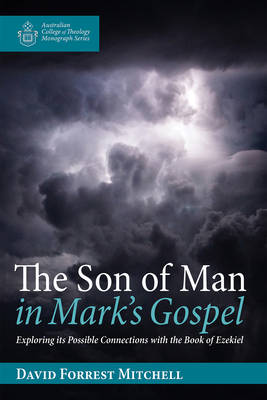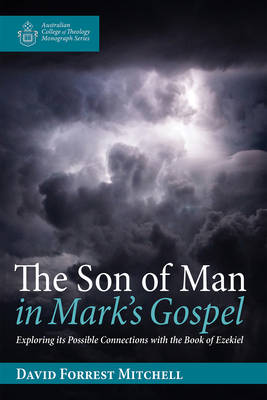
- Afhalen na 1 uur in een winkel met voorraad
- Gratis thuislevering in België vanaf € 30
- Ruim aanbod met 7 miljoen producten
- Afhalen na 1 uur in een winkel met voorraad
- Gratis thuislevering in België vanaf € 30
- Ruim aanbod met 7 miljoen producten
Zoeken
The Son of Man in Mark's Gospel
Exploring Its Possible Connections with the Book of Ezekiel
David Forrest Mitchell
€ 55,95
+ 111 punten
Uitvoering
Omschrijving
Many scholars disagree about what was meant by Jesus's intriguing self-designation ὁ υἱὸς τοῦ ἀνθρώπου (the Son of Man). This book attempts to find some clarity by working through every example of the phrase in the Gospel of Mark to determine how the phrase functions and what it means in that narrative. While every use of the phrase is self-referential and describes Jesus and his ministry, the analysis yields three main distinctions in use of the phrase as well as three significant unifying features. The book then moves to explore whether, despite of the skepticism of some scholars, there is some background for the phrase in the book of Ezekiel's use of בֶּן־אָדָם (son of man) in relation to basic form and function and to thematic import.
Specificaties
Betrokkenen
- Auteur(s):
- Uitgeverij:
Inhoud
- Aantal bladzijden:
- 114
- Taal:
- Engels
- Reeks:
Eigenschappen
- Productcode (EAN):
- 9781725256583
- Verschijningsdatum:
- 9/01/2020
- Uitvoering:
- Hardcover
- Formaat:
- Genaaid
- Afmetingen:
- 152 mm x 229 mm
- Gewicht:
- 326 g

Alleen bij Standaard Boekhandel
+ 111 punten op je klantenkaart van Standaard Boekhandel
Beoordelingen
We publiceren alleen reviews die voldoen aan de voorwaarden voor reviews. Bekijk onze voorwaarden voor reviews.











